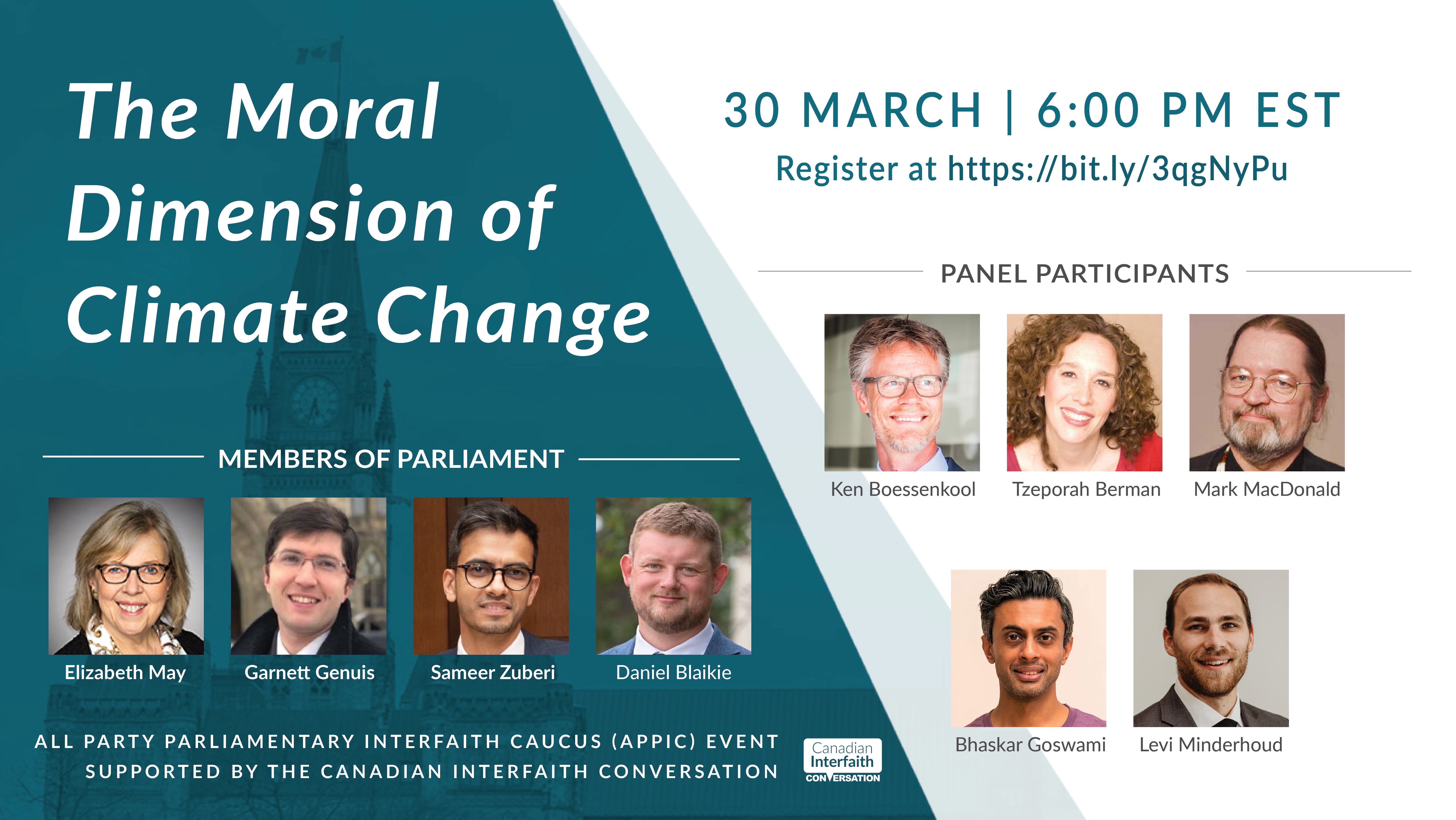“We are in a moment of peril, but… we are also in a moment of great promise,” said Member of Parliament Elizabeth May.

She was speaking as the chairperson for an event hosted by the All-Party Parliamentary Interfaith Caucus, a group launched in June 2021 with the support of the Canadian Interfaith Conversation and the Bahá’í Community of Canada’s Office of Public Affairs. The purpose of the All-Party Interfaith Caucus is to promote dialogue between Parliamentarians and representatives and members of Canada’s religious communities on matters of shared interest and concern.
This recent virtual event was titled, “The Moral Dimension of Climate Change,” and it invited a diverse range of speakers to reflect on the values that should inform climate policy and consider how to bridge political divides in the search for solutions. Over 130 participants engaged in the dialogue with expert speakers and parliamentarians.
“We do not stand on our own,” said Archbishop Mark MacDonald of the Anglican Church of Canada. “We stand together. This is the way that we have been made. It is important that faith groups re-introduce this way of thinking about our relation with all of creation.”
Archbishop MacDonald challenged the audience to reflect on the interdependence between human beings and their natural environment, a theme that was carried throughout the event.
Another speaker, Bhaskar Goswami, shared a perspective informed by Buddhist teachings. He observed that the degradation of the natural environment arises from spiritual sources: unmindful production and unmindful consumption. “The moral dimension is the only dimension,” he concluded. “That is the cause, and what comes from that is the effect.”
Tzeporah Berman, International Program Director with Stand.earth, reflected on the moral imperative of addressing the challenge of climate change. She said that the event led her to reflect more profoundly on the question of values, and why she began to work on climate issues. “My guiding sense of purpose,” she said, “is that every ton of carbon that does not go into the atmosphere will save lives.”
The fourth speaker at the event, Levi Minderhoud from the Association for Reformed Political Action, affirmed the intrinsic value of the environment and encouraged the audience to consider the role unique role of human beings in the realm of creation. Humans are part of the natural world, but are not the same as it, he stated. Therefore, we have to think about how to properly value things in order to show good stewardship of the environment.
The panelists’ remarks were followed by questions and comments from members of the Executive Committee of the All-Party Parliamentary Interfaith Caucus. Drawing from audience questions, MP Garnett Genuis asked the panelists to connect their feelings of wonder about the natural world with a sense of responsibility to address the causes of climate change. MP Daniel Blaikie added, “Faith can help us to gain a different perspective on climate, not just seeing it in terms of consequentialist terms. Wonder can help us to feel of the world and connected to the world, and it can help people to have stronger feelings about the world.”
Blaikie continued that faith can also remind us of the need for humility. “While technology is a great thing, it won’t be the answer to all our problems. Faith traditions call us back to humility and connection with the wider world.”
The event closed with reflections by MP Sameer Zuberi, who observed that “we are all changemakers and we all impact our environments around us, whether our households, families, friends, and environments.”

